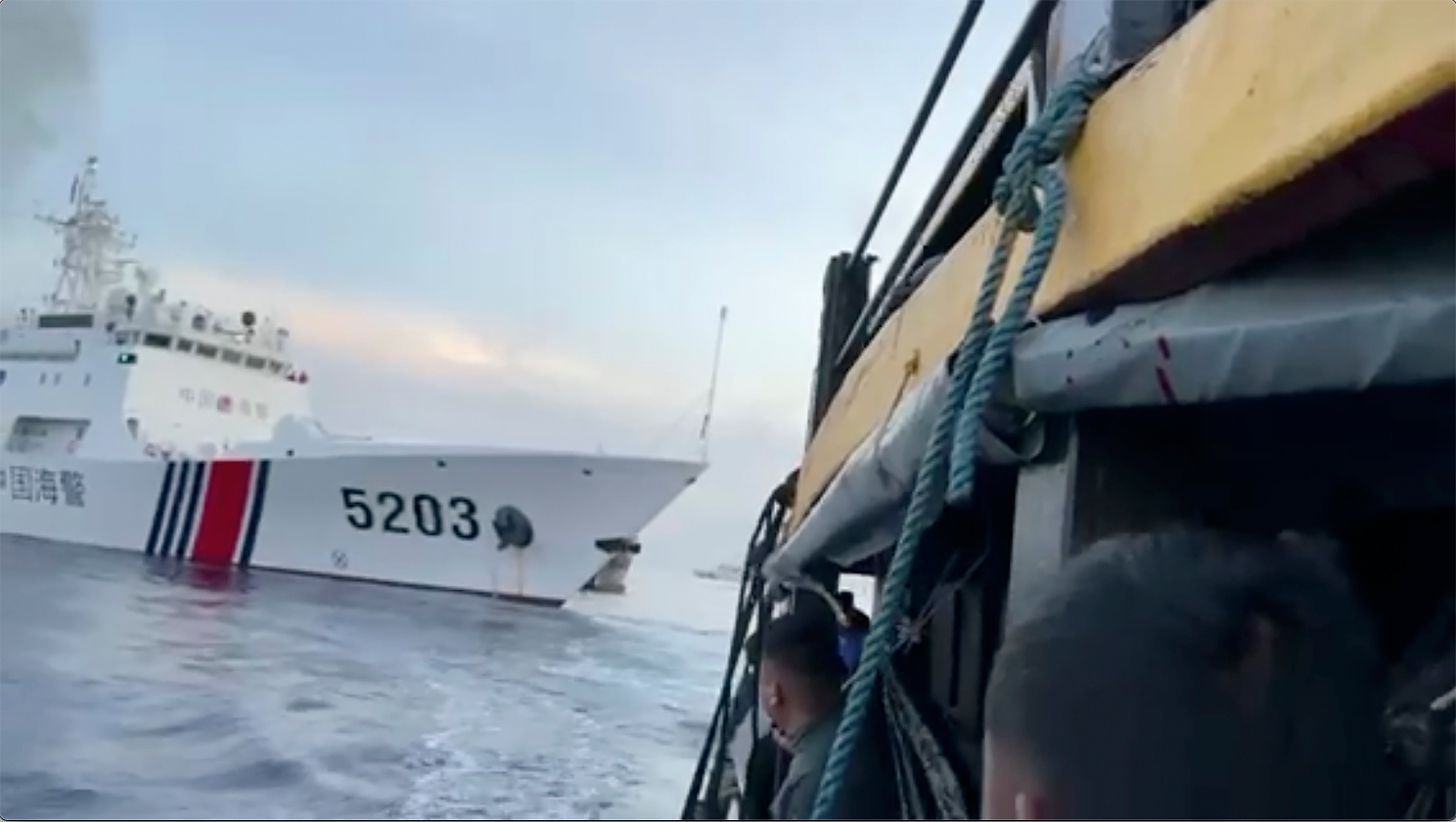China and Southeast Asia nations vow to conclude a nonaggression pact faster as sea crises escalate
Diplomats from Chinese and a Southeast Asian group of nations have renewed a pledge to finalize a nonaggression pact for the South China Sea in three years

Your support helps us to tell the story
From reproductive rights to climate change to Big Tech, The Independent is on the ground when the story is developing. Whether it's investigating the financials of Elon Musk's pro-Trump PAC or producing our latest documentary, 'The A Word', which shines a light on the American women fighting for reproductive rights, we know how important it is to parse out the facts from the messaging.
At such a critical moment in US history, we need reporters on the ground. Your donation allows us to keep sending journalists to speak to both sides of the story.
The Independent is trusted by Americans across the entire political spectrum. And unlike many other quality news outlets, we choose not to lock Americans out of our reporting and analysis with paywalls. We believe quality journalism should be available to everyone, paid for by those who can afford it.
Your support makes all the difference.Chinese and Southeast Asian diplomats renewed a vow to finalize a nonaggression pact for the South China Sea in three years, two regional diplomats said Thursday. The pledge came during a meeting last week in Beijing, where they expressed alarm over recent confrontations in the disputed waters.
The Philippines has protested what it says are increasingly dangerous and provocative maneuvers by China’s coast guard and navy ships in recent months. On Oct. 22, two Chinese ships blocked and separately collided with two Philippine vessels near the disputed Second Thomas Shoal in the South China Sea.
Following the collisions, the United States renewed a warning that it’s obligated to defend the Philippines, a longtime treaty ally, if Filipino forces come under an armed attack anywhere in the contested waters. The Philippine government summoned a Chinese diplomat in Manila for a strongly worded protest.
Association of Southeast Asian Nations diplomats separately expressed their concerns over the recent confrontations in the three days of talks hosted by Beijing.
China and the Philippines provided contrasting versions of the high seas encounters in a “tense exchange” and separately showed videos of the standoffs, the two diplomats told The Associated Press. They spoke on condition of anonymity because they were not authorized to discuss the issue.
The Beijing talks were the latest round of negotiations by China and ASEAN to forge a “code of conduct” to prevent a larger armed conflict in the South China Sea that could pit China against the United States.
A July meeting of ASEAN foreign ministers with their Chinese counterpart in the Indonesian capital of Jakarta said the talks, which have dragged on for years and faced delays, could be concluded in three years' time, the two diplomats said.
China and four of ASEAN’s member states — Brunei, Malaysia, the Philippines and Vietnam — along with self-ruled Taiwan have been locked in a decades-long territorial standoff in the disputed waterway, a key passageway for global trade that is believed to be sitting atop vast undersea deposits of oil and gas.
The contested territory has long been feared as an Asian flashpoint and has become a sensitive front in the U.S.-China rivalry in the region.
Last week, a Chinese fighter jet came within 10 feet of an American B-52 bomber flying over the South China Sea and put both aircraft in danger of a collision, the U.S. Indo-Pacific Command said. Both countries blamed each other for the alarming incident.
Washington lays no territorial claims in the South China Sea but has said that freedom of navigation and overflight and the peaceful resolution of the disputes were in the United States’ national interest. It has challenged China’s expansive territorial claims in the region and Beijing has angrily reacted by warning the U.S. to stop meddling in what it calls a purely Asian dispute.
___
Find more AP Asia-Pacific coverage at https://apnews.com/hub/asia-pacific